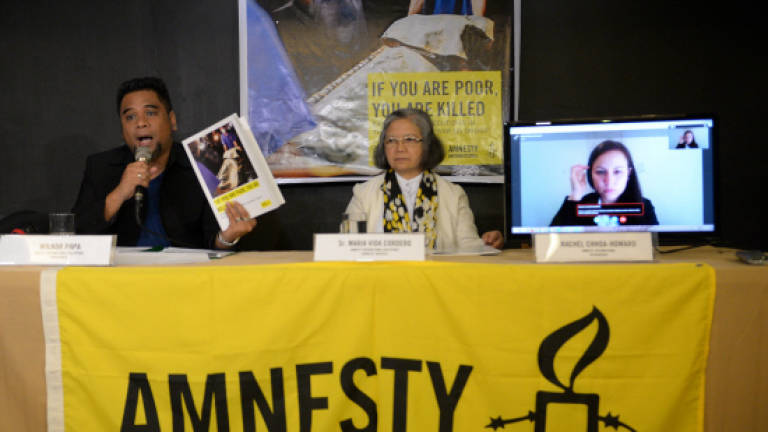‘Drugs war killings systematic, planned’

MANILA: Police prosecuting the war on drugs in the Philippines have behaved like the criminal underworld they are supposed to be suppressing, taking payments for killings and delivering bodies to funeral homes, according to a report released today.
Amnesty International's report said the wave of drugs-related killings since President Rodrigo Duterte came to power in mid-2016 appeared to be "systematic, planned and organised" by authorities and could constitute crimes against humanity.
The Presidential Communications Office did not immediately respond to a Reuters request for comment on Amnesty's findings.
In a series of reports last year, Reuters showed that the police had a 97% kill rate in their drug operations, the strongest proof yet that police were summarily shooting drug suspects.
The Reuters reports also found that low-level officials in poor neighbourhoods helped police assemble "watch lists" of alleged drug users and pushers that were effectively hit lists, with many of the people named ending up dead.
Duterte used exaggerated and flawed data, including the number of drug users in the Philippines, to justify his anti-narcotics crackdown, according to a Reuters investigation.
The release of Amnesty's investigation, which was based on 59 killings in 20 cities and towns, comes amid uncertainty over the crackdown after the government suspended all anti-drug operations by police on Monday due to rampant corruption.
The Philippine Drugs Enforcement Agency has now been given the lead role in the campaign.
Duterte made the decision after a security meeting on Sunday triggered by the kidnap and killing of a South Korean businessman by drugs squad police.
He said the incident, which took place at the national police headquarters, had embarrassed the country and tarnished the image of the police.
Amnesty said the vast majority of the killings it investigated "appear to have been extra-judicial killings – unlawful and deliberate killings carried out by government order or with its complicity or acquiescence".
"The Duterte administration's relentless pressure on the police to deliver results in anti-drug operations has helped encourage these abusive practices."
A senior police officer told Amnesty that police are "paid by the encounter", receiving the equivalent of at least US$160 (RM700) per killing and received nothing for making arrests.
Amnesty reported that some police are rewarded by undertakers for sending dead bodies their way, police steal from victims' homes, and paid killers are on the police payroll.
"The police are behaving like the criminal underworld that they are supposed to be enforcing the law against, by carrying out extrajudicial executions disguised as unknown killers and 'contracting out' killings," it said.
The government has denied sponsoring extra-judicial killings, or police collaboration with assassins. – Reuters